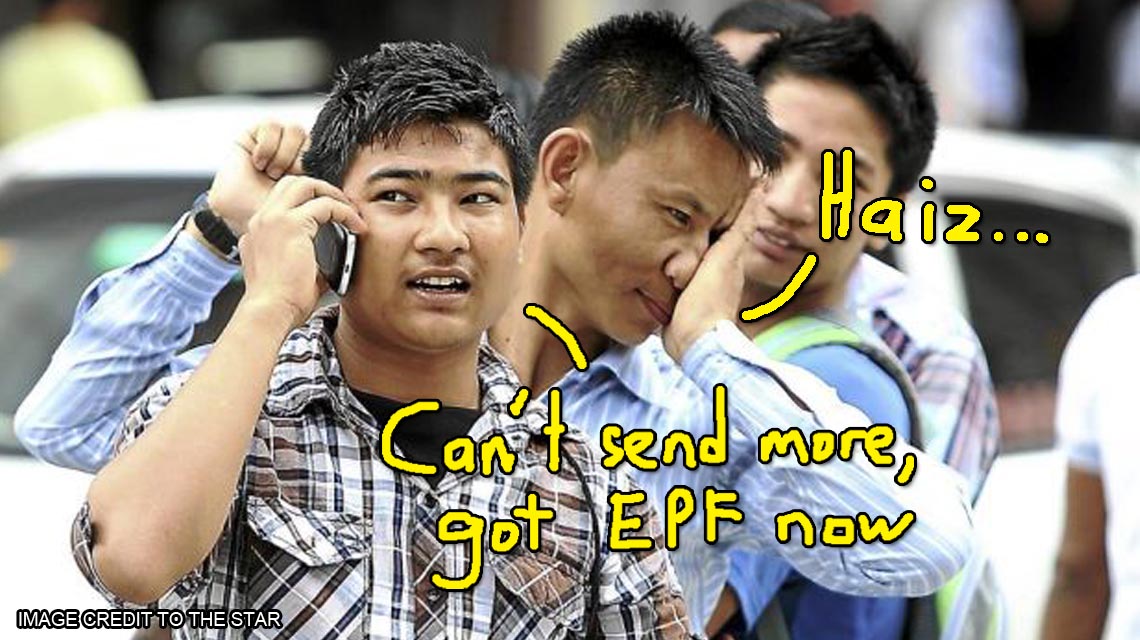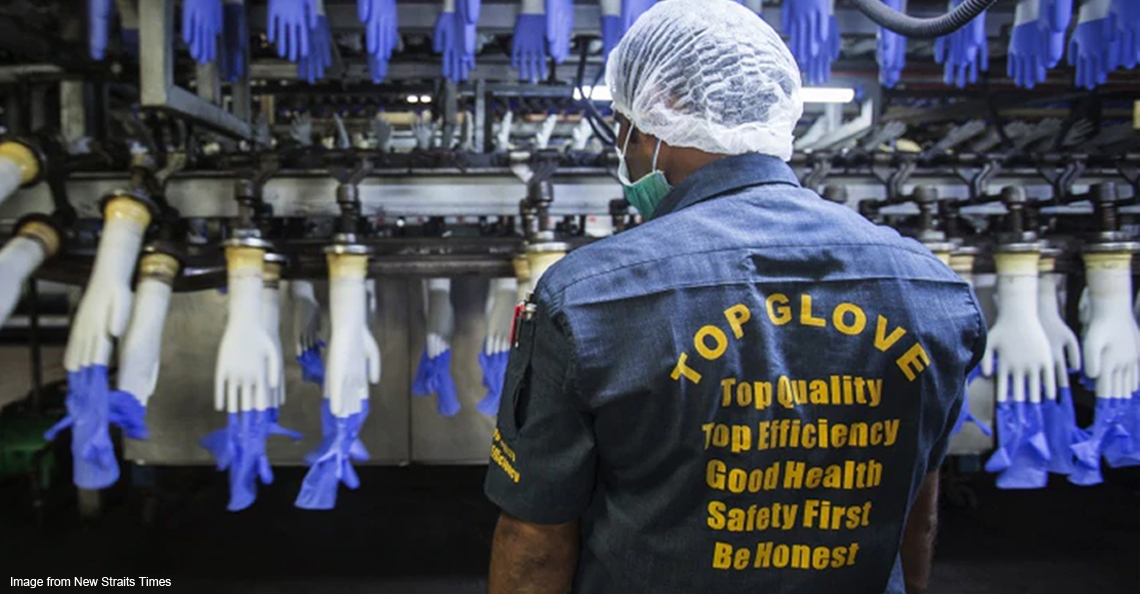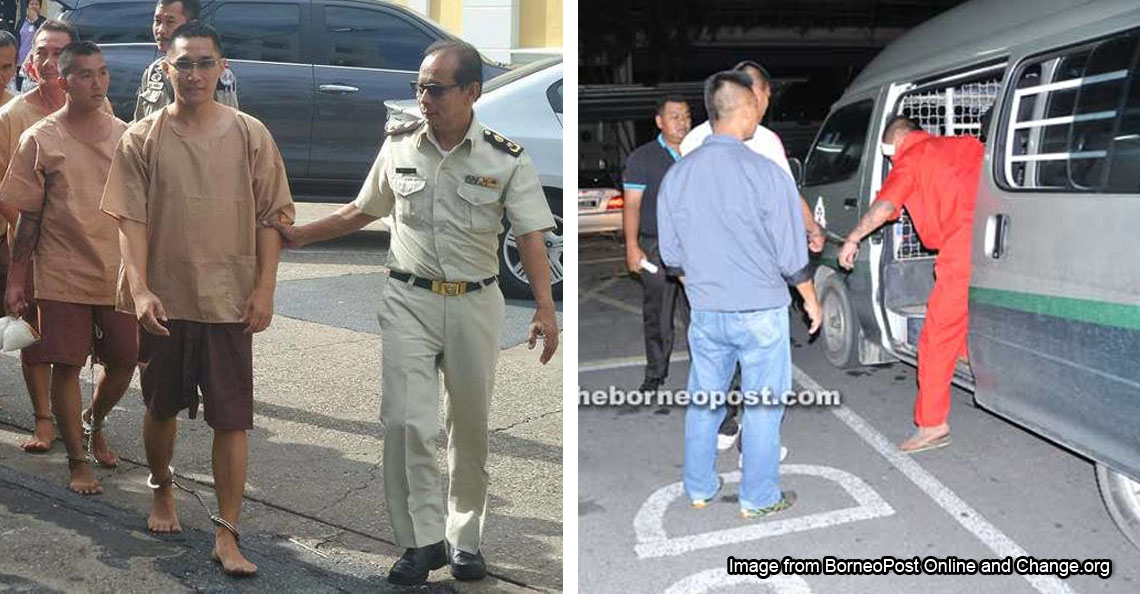3 private companies headed by UMNO members profit from millions of foreign workers flooding Malaysia

- 24.0KShares
- Facebook22.1K
- Twitter158
- LinkedIn195
- Email278
- WhatsApp1.2K
[Ed’s note: This article was originally published on 28th August 2017, but has gone viral again after news of Nepal barring its workers from coming to Malaysia. Do note that ‘the government’ written in this article refers to the ruling government of Malaysia at the time (Barisan Nasional).]
Al Jazeera 101 East has broadcast an exposé on the underground business of legalising migrant workers who have entered Malaysia illegally. It’s a lucrative business that has lined the pockets of some prominent people, while leaving the poor migrant workers in crippling debt. The episode titled ‘Malaysia’s Migrant Money Trail’ was filmed by 101 East journalist Chan Tau Chou and released on 20 July 2017.
It begins with the heartbreaking story of one Bangladeshi worker named ‘Nasir’ (not his real name), who agreed to talk to Chan if they protected his identity. Desperate for work, millions of migrants from impoverished countries all over Asia are drawn to Malaysia. It is estimated there are 4 million workers here illegally, while 2 million are legal. Nasir is just one of many other migrant workers, who were cheated by unscrupulous agents…
They think they are coming to Malaysia legally. But when they arrive, they find out they have been cheated
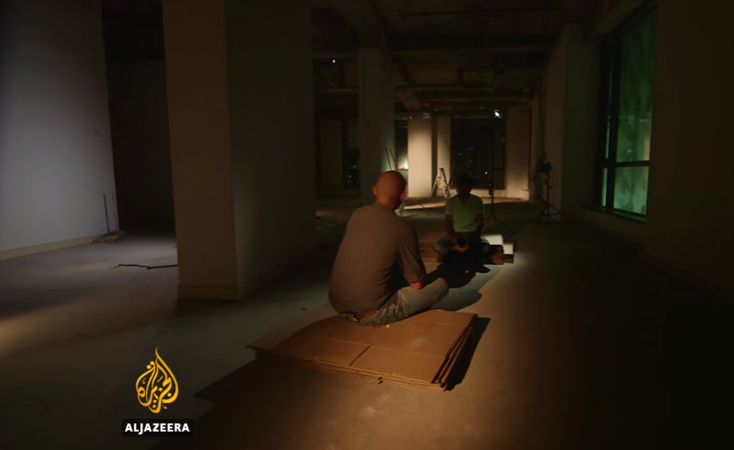
Like most migrant workers, Nasir took a big loan to pay a recruitment agent to find him a job, thinking it was all legal and confirmed.
The recruitment agent thing is quite a common scam in such countries, for example, the high profile case of Mary Jane Veloso, a Filipino who was tricked by an agent into thinking she would be hired as a domestic servant in Malaysia, where in reality was taken to Indonesia to work as a drug mule. She is now on death row in Indonesia. Besides Bangladesh and the Philippines, this happens in Nepal too, Vietnam, Cambodia, and even recently it was reported Chinese workers paid agents to get work at the Forest City project in Johor. It is essentially trafficking.
“An employment agent offered me the chance to work in Malaysia. He said it would cost 4,300 dollars to arrange it. He would send me on a tourist visa, prepare all the documents and get me a job. He said I could earn enough to send home 370 dollars a month. I agreed.” – Nasir told 101 East journalist Chan Tau Chou on Malaysia’s Migrant Money Trail
Nasir and a group of Bangladeshis flew to Malaysia in August 2016 with the agent… but after learning that his usual immigration contacts were not around to let them through, the agent told them they had to go to Indonesia before reentering Malaysia. They were herded onto a plane bound for Jakarta, where Indonesian traffickers took them to Medan. Upon arrival, they were taken to a house where Nasir saw many other Bangladeshis.
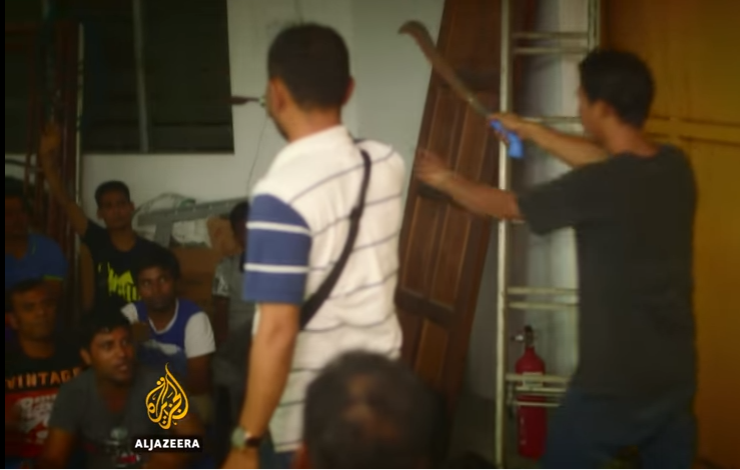
The men stayed for 2 weeks. Their passports and mobile phones were confiscated, and they given very little to eat. Hungry and fearful, they were also threatened with a beating if they protested. Finally, the traffickers brought them on a boat headed for Malacca, an arduous 3-day journey where they survived on what little water they had and uncooked rice.
“There were so many of us packed into a small boat. The weather was harsh. It was torture. One of the Indonesian guys beat someone on the head and he started bleeding. They said if there was any more shouting, they were going to throw us into the sea.” – Nasir
In their exhausted condition, they were forced off the boat and told to swim to shore, where they were informed an agent was waiting… except no one came for them for hours. Abandoned by their agent and without any papers, they were now illegal migrants.

At last, Nasir found work at a construction site in KL. Work is hard and the pay is meagre (RM200/month, he said), but saddled with debt and a family to feed back home in Bangladesh, he has no other option. Nasir wishes he never came to Malaysia.
Now the presence of illegal migrant workers has created a new kind of business in Malaysia… making them legal!
Three private companies headed by senior UMNO members can legalise migrant workers
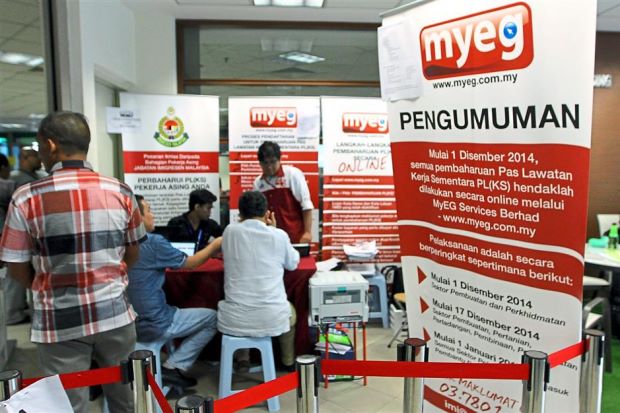
The Government allows employers to register their illegal migrant workers and then rehire them legally. The Government appointed 3 private companies employers must go through to legalise their workers – MyEG, Iman and Bukit Megah Sdn Bhd. Some politicians have questioned why outsource registration of migrant workers to private companies, coz previously it was the Home Ministry’s job and it was free. Now employers are charged RM38 per worker. But…all 3 companies are headed by senior UMNO members.
“The importing of migrant workers into Malaysia is not really to support local businesses, but rather it is seen as a business unto itself.” – Steven Sim, Bukit Mertajam MP (DAP) told 101 East
Meanwhile, MyEG and Iman have been linked to scandals. The Auditor General’s report found that MyEG’s system automatically renewed almost 9,000 work permits in 2013 without checks and green light from Immigration officers. Iman is suspected of bribing an Indonesian Embassy official to issue passports and visas. The official Dwi Widodo has been charged for corruption in Jakarta.
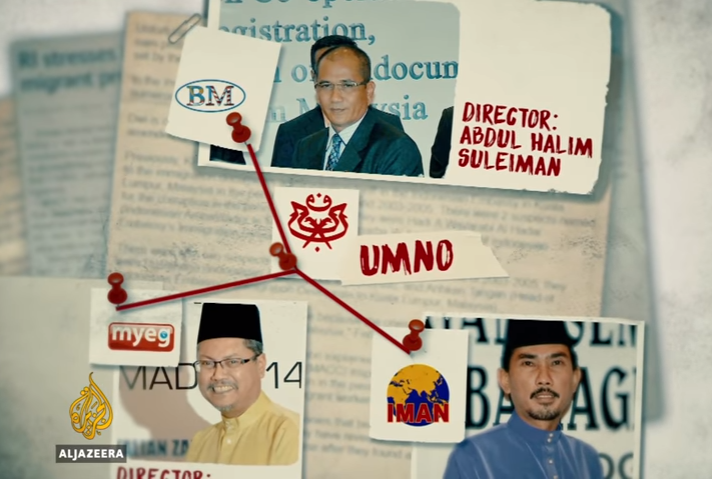
On top of legalising migrant workers who are already here, there’s more money to be made in bringing in more workers and the Government has appointed a group of companies to do that. Steven Sim calls them the Big Five Super-Agents, whose Directors are also closely linked to UMNO. They are all given contracts through direct negotiation, there’s no transparent open tender process, said Steven. By doing this, the Government has privatised the Home Ministry’s job, he added.
“Actually, migrant workers are one of the important ATMs for politicians.” – Alex Tong, activist told 101 East
One of the companies, Synerflux, is an online portal contracted to recruit 1.5 million Bangladeshi workers, based on the deal Malaysia signed with Bangladesh in February 2016. Deputy PM and Home Minister Ahmad Zahid Hamidi classified the Synerflux contract as a national secret!
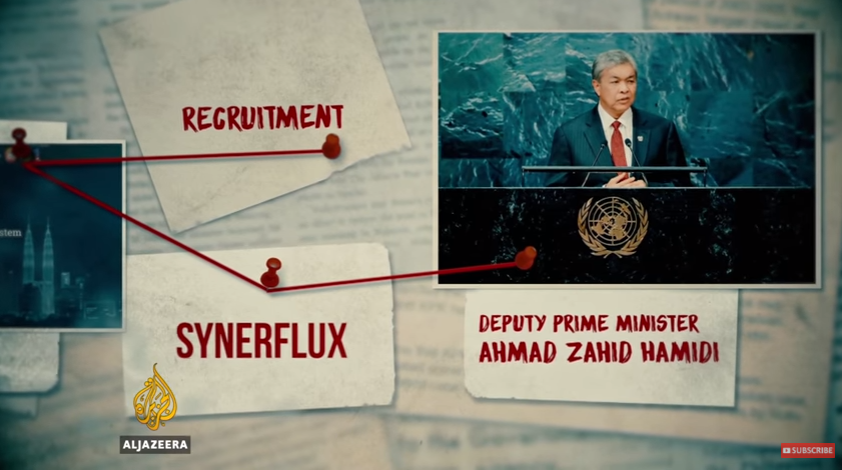
These companies have the monopoly, meaning to say for example, it was made compulsory for employers to send their workers for health checks and they have no choice but to go through this company called Fomema. And recently the Government also added a new health check requirement where workers have to through a second company called Bestinet. With such monopolies, employers also suffer the high cost of hiring migrant workers.
“When the importing of migrant labour is driven by private profit and not driven by the need of the industry or the need of our economy, that is the cause of our problem today.” – Steven
So, these companies contracted by the Government are meant to cut out unscrupulous agent and human traffickers, however corruption hasn’t stopped. Chan managed to uncover that these operations are still running with the help of connections in high places.
Chan also spoke to two insiders who promised to get him migrant workers under the table
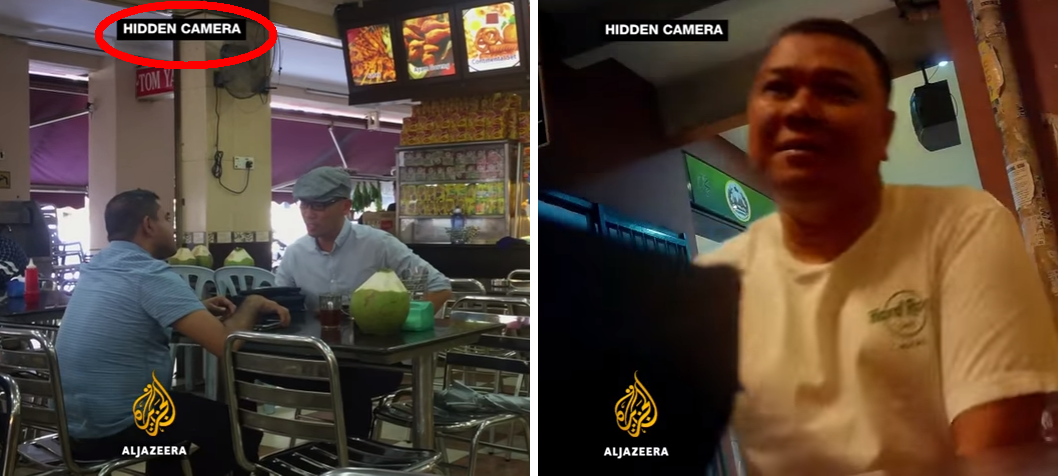
Posing as an employer looking for 100 construction workers, several migrant workers and an industry insider led him to a Bangladeshi agent based in Malaysia who told Chan he bribes Malaysian officials from Immigration and the Home Ministry! He told Chan he paid each person RM3,000-RM5,000 to bring in one worker.
Also undercover, Chan spoke to local insider Saiful Akmal who was an ex-Immigration officer. Saiful explained that those controlling the online recruitment portal recognise his account when he logs in and the applications he makes are approved within a week. How much does he charge? All in, RM7,000, he told Chan. He even sent photos and screenshots of recent applications he made.
“I tak cakap I pandai, tapi dalam itu saya punya grup. Actually I memang cakap sama you, I ex-Imigresen. So banyak benda yang I buat… RM6,000 untuk kelulusan dan untuk bayaran pas. Tapi you kena ingat, you nak buat permohonan dulu you kena bayar bank guarantee, you kena buat documentation everything. Mesti satu orang kena habis RM7,000 baru boleh jadi.” – Saiful, filmed on a hidden camera
Watch the conversations with the Bangladeshi agent and Saiful on the exposé.
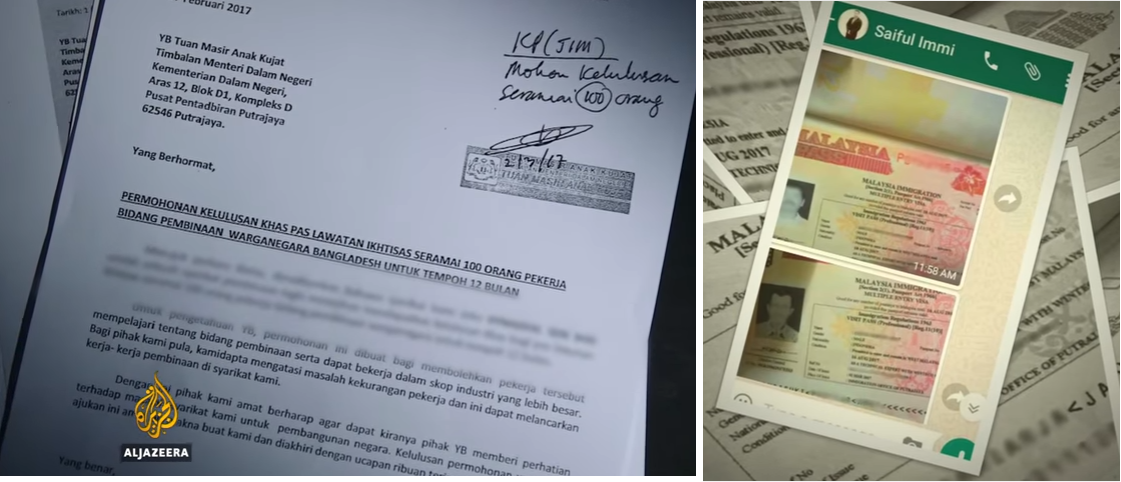
These two guys aside, the Special Branch revealed publicly that 80% of border guards were taking bribes. The following year, authorities busted an insider syndicate for disabling passport checks at the airport and since then, corrupt immigration officers continue to be arrested, though no one has been charged for bringing in illegal migrant workers, reported 101 East.
In the exposé, the journalist mentions that 101 East tried to get in touch with the Immigration Department and Home Ministry repeatedly, but got no response.
The Home Ministry denied the allegations after 101 East broadcast their film
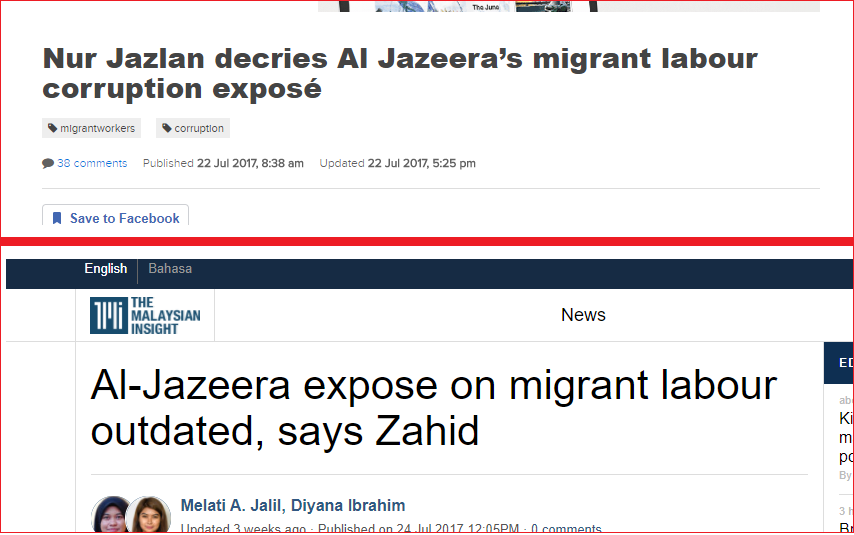
A few days after 101 East’s exposé was broadcast, both Home Minister Zahid and his Deputy Nur Jazlan Mohamed called it outdated. Zahid actually said, “Based on my investigation of the Al Jazeera programme, they did the recording of the programme six months ago and now with the online application system, such issues no longer happen.” But that’s exactly what 101 East tried to point out…that even with the online system, corrupt people be still corrupting (namely the Bangladeshi agent and the Saiful Akmal guy)!
Additionally, Nur Jazlan questioned the authenticity of the letters allegedly sent by the Home Ministry to the Immigration Department:
“There is a lot of correspondence between the Home Ministry and Immigration. We are worried some of (the letters) might be fake. We are monitoring cases of fake Home Ministry approval letters created by unscrupulous agents to cheat migrant workers. We will investigate these alleged letters of instructions to find out the true causes.” – Deputy Home Minister Nur Jazlan told Malaysiakini
So what is the solution to the issue now? Klang MP Charles Santiago suggests firstly to cut out all those private companies (like MyEG, Iman, Bukit Megah Sdn Bhd, etc.) and transfer the handling of migrant workers to the Human Resources Ministry instead of the Home Ministry, coz they know the industries requiring such workers and track migrant workers movements.
“The national plan says the proportion of migrant workers in the country’s workforce [is to] be set at 15% by 2020. For now, Zahid has to account to Parliament on how the ministry plans to achieve the target given that we have about two and a half years left.” – Charles Santiago, The Edge Markets
A month later late July, the Government also had a large scale crackdown, where they arrested 3,300 undocumented workers and 84 employers. Although it should be mentioned that they have done exercises like this before. But all this will remain pointless if the Government doesn’t come down hard on corruption itself.
“If we are only doing the legalising process for undocumented migrants who are already in Malaysia without securing our border, then we are of course encouraging more illegal immigration, because once they come in, it’s easy for them to get legalised.” – Steven Sim
- 24.0KShares
- Facebook22.1K
- Twitter158
- LinkedIn195
- Email278
- WhatsApp1.2K

